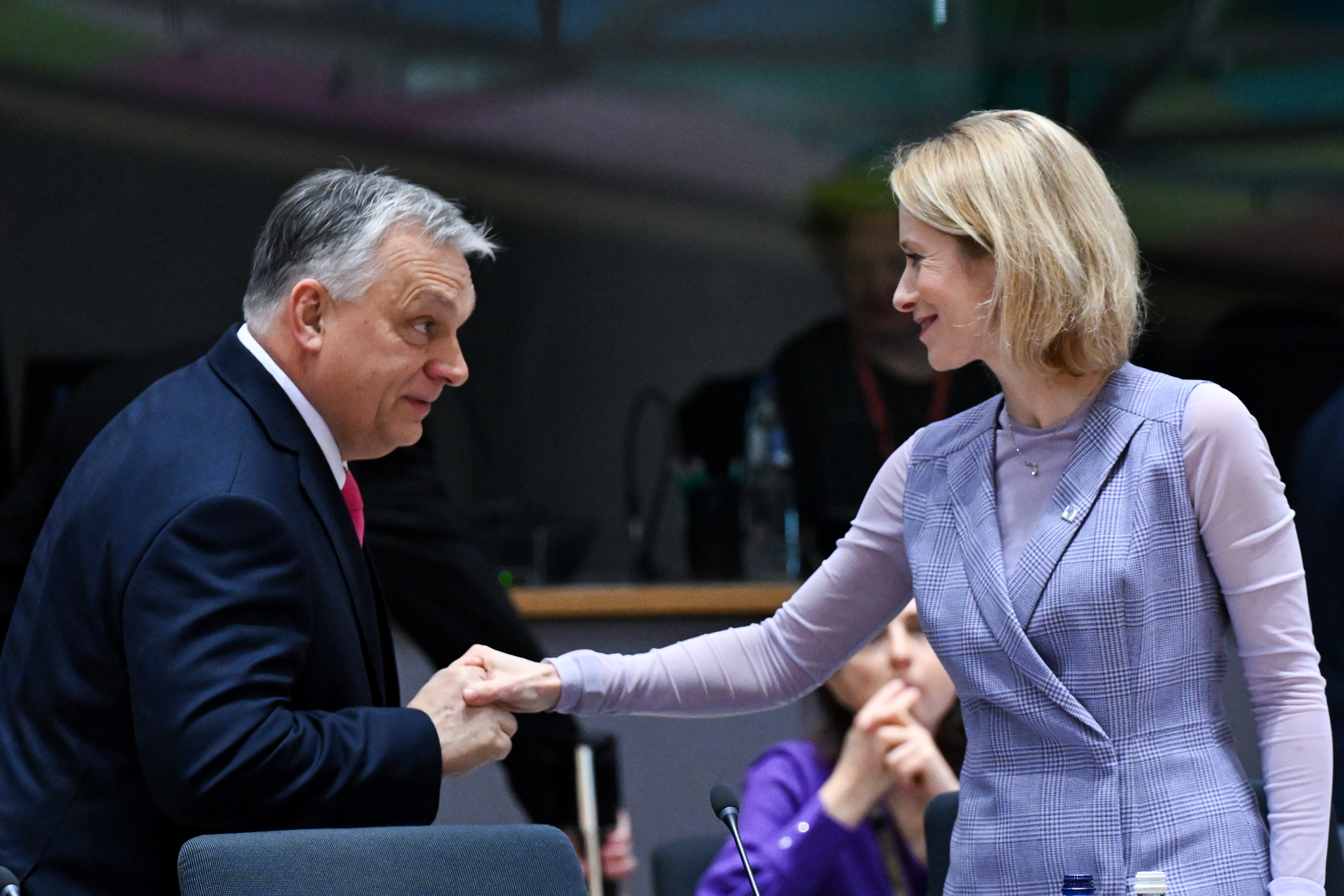
Good morning,
There's a clear hierarchy and vocabulary of moral indignation when it comes to EU diplomacy, I learned this week.
Foreign actions can be "deplored", "condemned", "strongly condemned", or "condemned in the strongest possible terms" in EU summit statements.
The EU merely "deplored" the 18 March Israeli airstrikes in Gaza, which reportedly killed 170 children.
The EU issued a "condemnation in the strongest possible terms" when Hamas attacked Israel on 7 October 2023 and it said it "condemns in the strongest possible terms" when Russia fully invaded Ukraine on 24 February 2022.
Having four levels in a diplomatic code is useful when you need to clearly communicate to other states how pissed off the EU is.
But "deplore" is also etymologically linked to crying, which makes it sound more passive than "condemnation", because this connotes inflicting a loss on someone.
And the strict codification aside, EU statements contain subtle poetry that can be quite telling.
This week's EU summit said there was a "breakdown" of the Gaza ceasefire, which "caused" airstrikes.
The passive tense made the "breakdown" sound like an act of God and Israel's unilateral decision to launch the airstrikes sound like a necessary consequence under the laws of physics. On the other side, the EU explicitly named "Hamas" and deplored its action ("refusal" to free hostages).
Meanwhile, reality can get so ugly that even hardened diplomats sometimes dig out their thesaurus for adjectives to embellish their four moral verbs.
The Hamas attacks of 7 October 2023 were "brutal and indiscriminate," for instance, and Hamas were guilty of a "particularly deplorable atrocity", the EU said at the time.
Russia's Ukraine invasion was "grossly violating international law," it said in 2022.
- Andrew Rettman, foreign affairs editor
Advert
Investing in a more competitive future for Europe should not go at the expense of workers – and European citizens agree. A new survey by UNI Europa shows a large majority of EU citizens (72%) are in favour of public procurement that strengthens workers’ livelihoods through collective bargaining, instead of only looking at price. Read the survey here.
Top Story
EU-26 back Ukraine at summit, again bypassing Hungary's Orbán

Bypassing Hungarian PM Viktor Orbán's veto, via separate statements on Ukraine on behalf of the other 26 EU leaders, is set to become the new norm at European Council summits.
What else you need to know
EU split over Commission’s push for centralised financial supervision
EU countries are split on centralising capital markets supervision, with Luxembourg and Ireland opposed and large economies, led by France, in favour. “Luxembourg and the 13 dwarves just block everything,” according to one diplomat from a large EU member state.Read on »
EU trade chief confirms delay of US whisky tariffs to mid-April
The EU will delay its retaliatory tariffs on the United States until mid-April in a bid to give more room for an agreed settlement to avoid a transatlantic trade war, the bloc’s trade commissioner said on Thursday.Read on »
Advert
Looking for a Policy Job? Ilaria got her interview in 24 minutes. Find your EU job on EUJobs.co
Hiring? Get top EU talent in just 30 days! Anthropic found 3 qualified candidates on day one using EUJobs. You can too.
Note: EUobserver receives a percentage on paid job postings made using this link. It's an experiment, we hope a lucrative one.
Pre-summit meeting of EU hardline anti-migration states swells in numbers
An informal gathering of leaders ahead of EU summits on how to best crack down on migration appears to be attracting more and more members.Read on »
A breakdown of how the EU migration crackdown isn't working Opinion
Are arrivals really down? Yes — but only on some routes, and likely only for now. Is demand for irregular journeys declining? No. Has smuggling been disrupted? No.Read on »
EU-26 back Ukraine at summit, again bypassing Hungary's Orbán
Bypassing Hungarian PM Viktor Orbán's veto, via separate statements on Ukraine on behalf of the other 26 EU leaders, is set to become the new norm at European Council summits.Read on »
In case you missed it
The turbo-charging of EU defence — explainedExplainer
As the European Commission sets out its vision for a single market for defence in its white paper due on Wednesday, we take a close look at global and European trends and the industry’s readiness to meet new challenges.Read on »
New EU defence spending spree — will UK get a slice of the pie?
Europe’s defence spending spree could offer a golden opportunity to rebuild EU-UK relations — but only if the two sides put aside previous differences over Brexit and quickly agree a defence and security pact. Read on »
Dekonspiratsiya: Meet 20 of Putin's EU spiesInvestigation
Russian spies are still active in the EU capital and have a "higher risk appetite" than before the Ukraine war — despite Belgium's efforts to push back against their plots.Read on »
Macron told you so, again and again – but he's not convincing the FrenchAnalysis
'Europe cannot trust the US for protection. We must be sovereign and stick together, especially in military matters.' Like a broken record, this has been Emmanuel Macron’s message since he took office in 2017. Now, his greatest 'I told you so' moment is here. There’s only one problem: he seems incapable of convincing the French.Read on »


Geen opmerkingen:
Een reactie posten